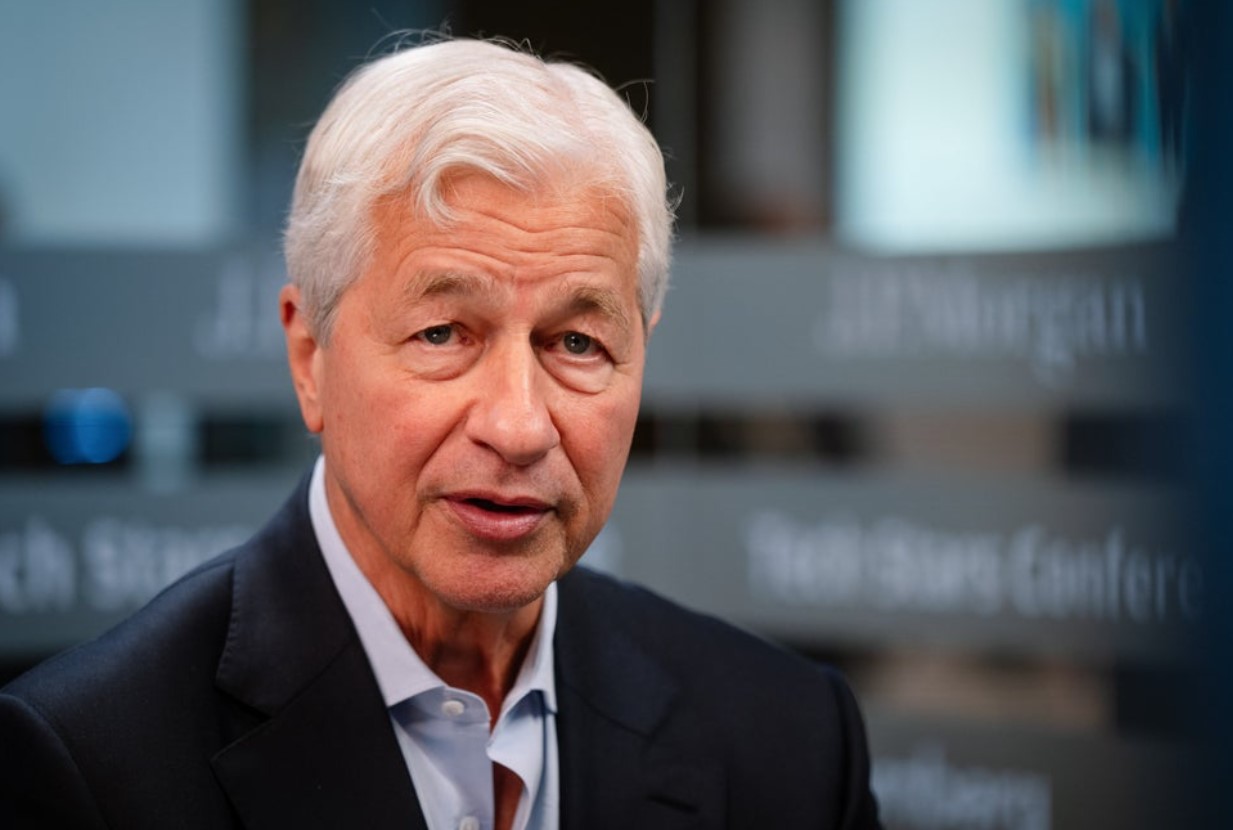US financial markets may be facing one of their toughest periods in years, warns Jamie Dimon, the CEO of JPMorgan Chase. The banking veteran cautions that the probability of a major stock market correction is far higher than most investors and analysts currently expect. His warning points to growing economic and geopolitical tensions that could shake markets over the next two years.
Dimon Predicts Higher Risk of Market Correction
Jamie Dimon told the BBC that the likelihood of a significant market drop is underestimated. He suggested that if the market currently prices in a 10% correction, the real probability could be closer to 30%. Dimon highlighted a range of risk factors including geopolitical uncertainty, government spending, and global military developments.
He stressed that investors should be prepared for unexpected market swings. “The level of uncertainty should be higher in most people’s minds than what I would call normal,” Dimon said. Analysts note that such statements from the head of America’s largest bank often signal caution for both institutional and retail investors.

Geopolitical Tensions Add to Market Anxiety
Dimon pointed to escalating global tensions as a key factor raising market risk. Conflicts in regions like the South China Sea, growing military buildups worldwide, and uncertain policy decisions from governments are driving investor unease.
He previously warned that the United States could run out of missiles within a week if a conflict erupted in the South China Sea. While such scenarios are extreme, Dimon said they underscore how quickly global crises can affect markets. These concerns are layered atop ongoing debates about fiscal spending, particularly in the US, which could influence inflation and long-term growth.
AI Investments May Not Be Safe Bets
Another factor Dimon highlighted is the rapid rise of artificial intelligence in the stock market. Many investors have poured money into AI companies, creating valuations that some experts consider unsustainably high.
Dimon warned that some of this money will likely be lost, even though AI as a technology is real and transformative. He compared it to the early days of cars and televisions: while the industries eventually thrived, most individual investors did not see major gains.
The warning comes at a time when AI startups are receiving record funding and the market is heavily betting on rapid returns. Dimon’s caution may signal that even high-profile tech sectors are not immune to a broader market downturn.
Policy and Defense Preparedness Key to Stability
Dimon also discussed the importance of policy decisions in shaping market resilience. He emphasized the need for central bank independence, particularly for the Federal Reserve, to maintain confidence in the economy. Dimon expressed trust in statements by political leaders promising not to interfere with the Fed, signaling that credibility in monetary policy remains crucial.
On the defense front, he stressed stronger military preparedness as a factor that indirectly affects markets. Security risks, he said, can ripple through financial systems, affecting investor confidence and global trade flows.
Investors Should Brace for Uncertainty
Financial experts suggest that Dimon’s warning should not be ignored. Market valuations, geopolitical tensions, and technology hype combine to create conditions where a sharp correction could happen within the next six months to two years. Investors may need to consider portfolio diversification and risk management more seriously than in recent years.
Historical data shows that high valuations coupled with geopolitical risks often precede market corrections. While predicting exact timing is impossible, Dimon’s forecast adds weight to the growing caution in the financial community.
In a period of heightened uncertainty, Dimon’s words remind investors that markets are influenced not just by profits and earnings but also by global stability and policy reliability. His insights suggest a more conservative approach could be warranted in the months ahead.
How do you view the risk of a US stock market correction? Share your thoughts with friends and discuss the latest developments in finance.
































